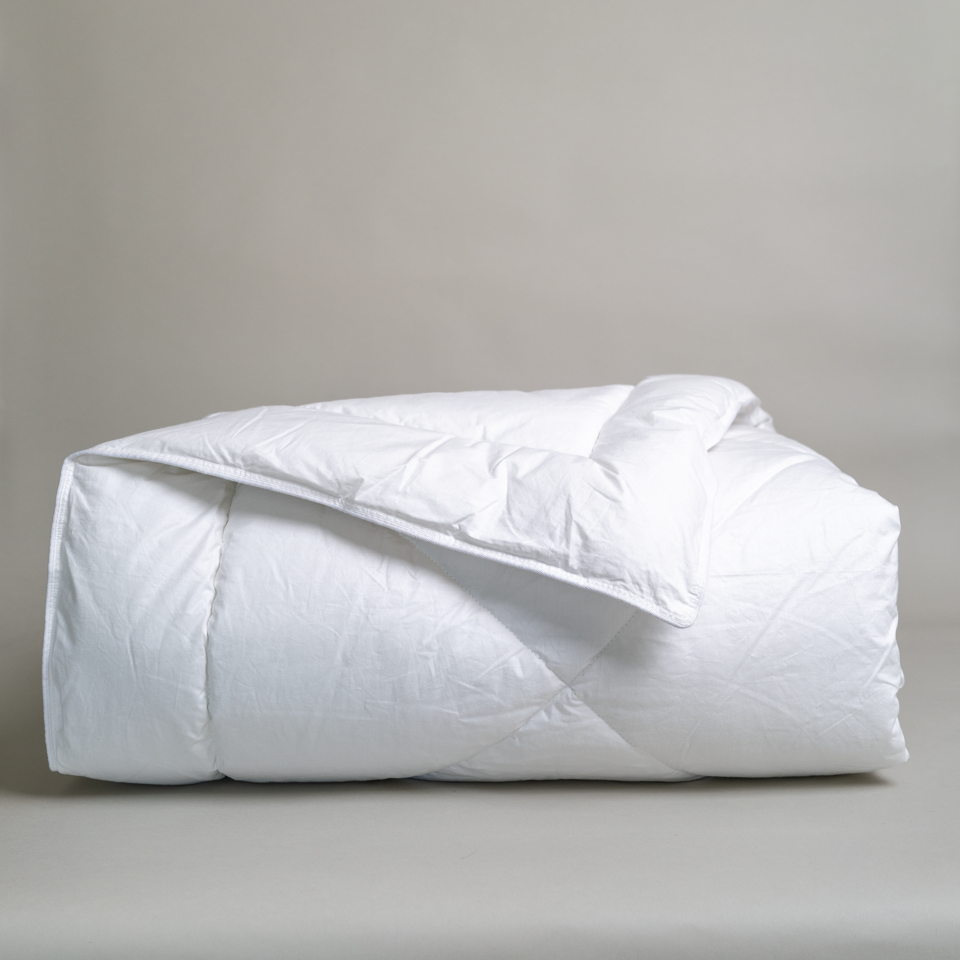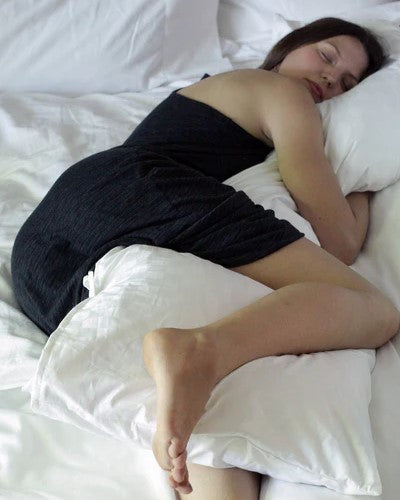Many of us remember that special stuffed animal that we cuddled at night or carried around during the day. It should be no surprise that some of the same benefits we experienced as children—comfort, calm, and solace—can be found as adults when we hug a person, pillow, or stuffed animal.
Hugging a Pillow Can Soothe Adults and Children Alike
At down etc, we believe a pillow is more than simply a place to rest our heads. You might consider a pillow to hug whenever you’re trying to do any of the following:
1. Relax into Sleep
Several studies have shown the act of hugging can relieve stress and hugging a stuffed animal can help even adults to self-soothe. Pillows offer that same possibility when settling into bed as the final step in a calming bedtime routine. Hugging a pillow becomes a cue that it’s time for settling down to sleep. You can choose to hug the same style pillow on which you rest your or head, or you can go larger depending upon your size. You can also decide whether you'd like down and feather or a down alternative fill, just as you would when selecting a pillow for your head.
2. Breathe to Calm Your Mind and Body
We are fans of breathing techniques like the 4-7-8 method to calm our minds and bodies, particularly before sleep. Another breathing technique called “teddy bear breathing” is often used to engage younger people. This method calls for lying on the back, placing a teddy bear on the stomach, and breathing in through the nose and out through the mouth. Our peri bear with blankie is a cuddly, cozy sleep pal who loves to practice breathing and travels with his own fleece blanket. The goal is to keep the chest still while noting the movement up and down of the teddy bear on the stomach. This same breathing activity can be done effectively by adults using a small travel pillow.
3. Position Yourself in Bed
Your pillow is a tool to help your posture during the night. Our body pillow can keep you in alignment, preventing your shoulders from hunching and providing a cushion between your knees. A huggable pillow, particularly a body pillow, can encourage a snorer to sleep on their side and make it easier for pregnant women who are encouraged to sleep on their sides to remain on their sides by positioning one pillow to hug and the other to provide stability behind the back.
4. Create a Connection to Something Tangible
Hugging a pillow can go a long way to satisfying the need for connection with something tangible. Even if you have a sleeping partner, hugging that person all night might not be feasible, particularly if they move in their sleep or generate excessive heat. A pillow allows you to create the cozy temperature- and movement-controlled nest you need to settle into sleep and remain asleep.
In selecting your hugging pillow, you'll probably begin by choosing a firmness level. If you'd prefer something really squishy, we suggest our ultra-soft white goose down pillows. If you'd rather have something more substantial to hug, look for our rhapsody wrap pillow, a favorite of side sleepers for its combination of softness and support. Next, consider what size would aid the way you sleep. Would you prefer a standard size pillow that provides a place to wrap your arms or a body pillow that offers a full-length hug?
5. Revisit a Soothing Memory
Hugging a pillow is also a reminder of childhood when we curled up with a stuffed animal or favorite blanket to be comforted to sleep. Our hug it like you love it! heart pillow is the perfect size to gift someone you love who might enjoy the soothing comfort of hugging a pillow.
Bonus: Gently Begin Your Day
Pillows incorporated into a morning stretching routine offer a pleasant way to ease into the day. Our pillowcise™ routine is a gentle series of stretches designed to be done using your pillow before getting out of bed.
Read more:
Why Are We Seeing So Many Stuffed Animals at Hotel Check-In?
DISCLAIMER: You should not rely on any of the foregoing as a substitute for, nor does it replace, professional medical or health and wellness advice, diagnosis, or treatment by a healthcare professional. If you have specific concerns or a situation in which you require professional or medical advice, you should consult with an appropriately trained and qualified specialist, such as a licensed physician, psychologist, or other health professional. Never disregard the medical advice of a physician, psychologist, or other health professional, or delay in seeking such advice, because of the information or content offered or provided on the Site. The use of the Site and all information and content contained thereon is solely at your own risk.






